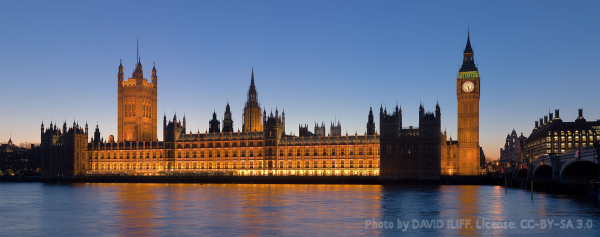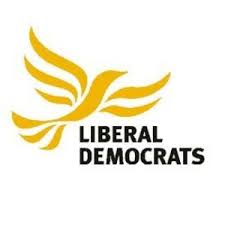
Democracy for our Digital Future (Part II): The battle for privacy, citizenship and a new digital commons
Anthony Barnett, founder of openDemocracy, opened the discussion on digital freedoms on an optimistic note by predicting that the UK will have a codified constitution in the next 25 years and can therefore become the first major democracy to harness the participatory potential of the web to found a new constitutional settlement. He laid out three pressing issues for democracy in the digital age: i) What does it mean to be a person? ii) How do we address the corporate power of tech companies? iii) How do we define what we have in common? There is no need to reinvent the wheel when it comes to legal protections against state surveillance, suggested Carly Nyst of Privacy International. We have an …

Democracy for our Digital Future (Part I): Seven reasons why ‘We, the People’ should take charge of constitutional change
We are in a curious and uncertain period for the British state, its antiquated constitution and ways of doing politics. A number of serious challenges are on the horizon and it is unclear how much longer the political framework of the Westminster system can remain intact. The traditional attitude of the British elite has been to ‘muddle through’, introducing reform in a piecemeal manner in response to popular demands for change, while doing its best to preserve the core features of a monarchical system based on executive dominance of a ‘sovereign’ parliament via royally acquired prerogatives and patronage. A huge gulf exists between the empowered governance made possible by digital technology and the antiquated reality of the Westminster system. In …

Populism in an FPTP system: UKIP may still succeed if they play the waiting game
Coverage and analyses of the recent British general election of 7 May have focused predominantly on the surprise victory of the Conservatives, the poor showing of Labour, and the close to clean sweep of the Scottish National Party (SNP). The performance of the UK Independence Party (UKIP), meanwhile, was generally perceived to be disappointing for the party of Nigel Farage. Indeed, it has been argued that, despite the high expectations of the past years, UKIP fell well short of causing a ‘Purple Revolution’. At the end of 2014 the party were trending at around 20 per cent in several opinion polls with some excitable elements in the media claiming the party could win as many as 40 seats in the general election. Given this narrative was just six months before the election, their final result of just one seat compounded the apparent failure of Farage’s ‘People’s Army’ to mobilise.

The case against directly-elected executive mayors
The main argument against the Directly-Elected Executive Mayor (DEEM) model outlined by George Osborne is its concentration of power in a single person. The assumption of the advocates of DEEMs is there must be individual leadership rather than collegial team leadership. But the advantage of collective leadership is it enables exploration of policy from different perspectives. Colleagues can consider possible impacts of policy in a variety of contexts, spotting pitfalls ahead and the consequences for different people and groups. A single person is unlikely to represent the diverse complexities of a large urban, metropolitan or county region area better than can collective leadership. A DEEM cannot cover all the functions of the local authority. They have to rely on unaccountable …

It is the perception of immigration levels, rather than actual change in local areas, that explains the UKIP vote
Is there evidence that UKIP support is channelled by local concerns about the influx of immigrants? In fact, the UKIP vote is not actually driven by experience of change in local areas. Instead, the UKIP vote is correlated with the perception of levels of immigration.
The renewed interested in the connection between immigration and electoral politics can be traced to the spectacular rise of UKIP. Even though the party secured just one seat in 2015 general election, its anti-immigration rhetoric resonated strongly among certain sections of Britain’s electorate – UKIP polled 13 per cent of the vote and came second in 120 out of 624 contested seats. Although the party originallyfocused around Conservative euroscepticism rather than immigration, relative to supporters of other parties UKIP sympathisers are much more likely to see immigration as the single most important issue facing the country (see figure 1). Aside from party rhetoric, exemplified by Nigel Farage asserting that parts of Britain were becoming like a ‘foreign land’, is there evidence that UKIP support is channelled by local concerns about the influx of immigrants?

The UK government says no to democratic reform
Within hours of the general election Whitehall started making new MPs irrelevant. Even before the new parliament has heard the Queen’s Speech, Whitehall has begun to treat the legitimate and elected part of our political settlement with contempt by abolishing an effective part of parliamentary scrutiny, the Political and Constitutional Reform Select Committee. New MPs will of course know of the battle between parties, but there is also an historic, never ending democratic battle – regardless of party – between the executive (government) and legislature (parliament). It is an uneven battle which – while not covered in new MPs’ induction packs – those who think beyond the tribal will soon become familiar with. It often transcends partisanship since all parties who …

Notes on the Elections
This election promised to produce constitutional confusion and uncertainty and instead it has delivered stark clarity. The British electoral system values clarity: few people dissent from the line that it is better to have a government that can pass legislation and take decisions when it needs to than to be stuck with one that stumbles on hand-to-mouth from vote to vote. We seem to prefer certainty to confusion. But why? What evidence is there that majority governments are better at governing? The fundamental long-term problems this country faces – inequality, a struggling education system, growing health costs, changing employment patterns, environmental threats – are ones that a series of majority governments (and I include the coalition, which had a big parliamentary majority) have failed to address. This is not just a left/right issue. Blair didn’t tackle them, despite his massive parliamentary ascendancy, any more than Thatcher did. Majority governments flatter to deceive. They are not more decisive. They are just more biddable.

Where next for the Liberal Democrats?
Labour’s predicament is difficult, but it is the Liberal Democrats who face an existential crisis. What then should the Lib Dems do next? The overriding priority must be to restore trust in the party.
The general election results marked a damaging setback for Labour and a brutal defeat for the Liberal Democrats. In 2010, patterns of tactical voting which had built up over twenty years helped both parties retain enough marginals to deny David Cameron a majority. This time round, the firewalldisintegrated. Labour made a net gain of just two from the Conservatives, whilst the Liberal Democrats collapsed in suburban England and their south-western heartlands as the centre-left vote fragmented and centre-right voters moved over to the Tories. The SNP landslide in Scotland completed the rout.
It was difficult for both parties to fight against the ‘fear factor’ whipped up by the press and the huge amount of direct mail which the Conservatives poured into target seats, but there were also significant self-inflicted wounds. Not only did the Liberal Democrats alienate left-leaning voters by entering the coalition, but its leaders did as much as David Cameron and George Osborne to brand Labour as spendthrift and irresponsible – Nick Clegg by playing up the comparison between the UK and Greece, David Laws by brandishing the now-notorious note from Liam Byrne. By crediting the Tories with a ‘head’ and Labour with a ‘heart’, the party’s election campaign stoked fears of Labour and helped drive swing voters to the Conservatives. Worse, Nick Clegg’s insistence that a hung parliament was inevitable – in line with the pundits and the published polls – fostered complacency on the left and exacerbated tactical unwind.









